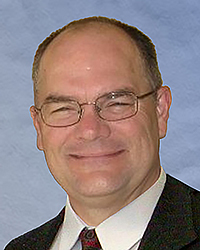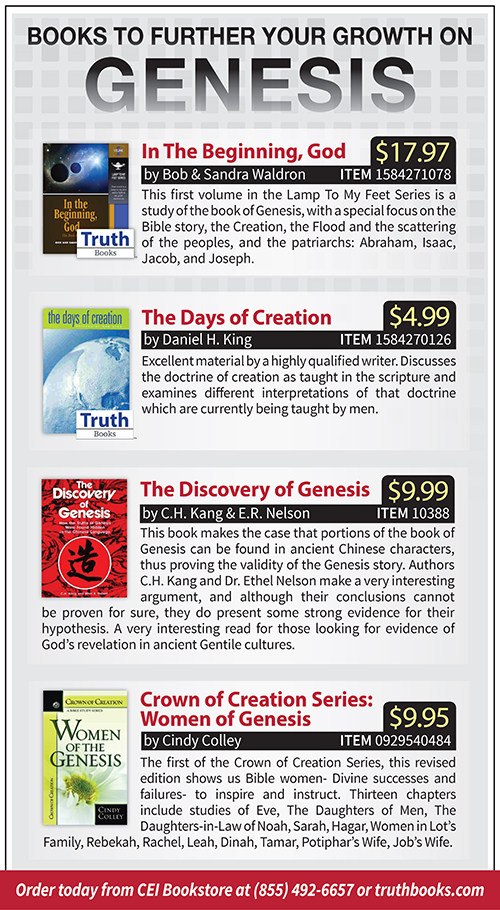

by Kyle Pope
Synopsis: Josiah, the final faithful king of Judah, was a man of great courage and dedication to God's word. Kyle reminds us that his life teaches us powerful lessons about what it truly means to serve God.
In most instances in First and Second Kings, David is the king who is the model of service to God (1 Kings 15:3; 15:11; 2 Kings 14:3; 16:2; 18:3). There is one king, however, who surpasses even David. Concerning Josiah, 2 Kings 23:25 tells us, "Now before him there was no king like him, who turned to the Lord with all his heart, with all his soul, and with all his might, according to all the Law of Moses; nor after him did any arise like him" (NKJV).
The story of Josiah's life begins nearly three hundred years before his birth. When the kingdoms of Israel and Judah were divided, the wicked king, Jeroboam, established the idolatrous worship of gold calves at Dan and Bethel. 1 Kings 13:1-34 tells us about a prophet who confronted Jeroboam at Bethel as he stood by an altar he had built to burn incense. The prophet cried out: "O altar, altar! Thus says the Lord: 'Behold, a child, Josiah by name, shall be born to the house of David; and on you he shall sacrifice the priests of the high places who burn incense on you, and men's bones shall be burned on you'" (1 Kings 13:2).
When Josiah was born years later, the kingdom he would inherit differed little from the wickedness of Jeroboam's day. The evil reigns of his father, Amon, and his grandfather, Manasseh, reversed all the righteous reforms of his noble great-grandfather, Hezekiah (see 2 Kings 21). Josiah began to reign at the age of eight after his father's servants had killed him in his own house (2 Chron. 33:24). When the people of the land rose up and executed the conspirators, Josiah was placed upon the throne (2 Kings 21:24).
While we might expect that Josiah would continue in the wickedness of his fathers, 2 Chronicles 34:3 tells us that in the eighth year of his reign, at the age of sixteen, "he began to seek the God of his father David." This spiritual quest would take this young man to heights he surely never imagined. Four years later he began to purge Judah of idolatry, destroying the altars to Baal, pulverizing the molded, carved, and wooden images, and scattering the dust on the graves of those who had worshipped at their altars (2 Chron. 34:4).
Second Chronicles makes it clear that Josiah began his first efforts to purge Israel of idolatry with a relatively naïve understanding of what it meant to "seek the God of his father David." It was not until six years later, in the eighteenth year of his reign that an event occurred that changed Josiah forever (2 Chron. 34:8). After his initial purge, he commissioned a major restoration of the temple. In the course of this effort, the High Priest, Hilkiah, found "the book of the Law of the Lord [given] by Moses" (2 Chron. 34:14). A scribe named Shaphan read the book to the king, and as Josiah heard God's instructions, his heart was broken as he recognized how his nation and his fathers had sinned against God. Josiah tore his clothes in remorse and commanded that inquiry be made to the Lord, "because our fathers have not obeyed the words of this book to do according to all that is written concerning us" (2 Kings 22:13). The Lord answered Josiah's inquiry through a prophetess named Huldah, who revealed that the Lord planned to destroy Judah and Jerusalem because of the wickedness of the nation (2 Kings 22:16-17; 2 Chron. 34:24-25). Yet, the Lord promised Josiah not to bring destruction during his reign, "because your heart was tender, and you humbled yourself before God when you heard His words" (2 Chron. 34:27).
After hearing this, Josiah called the people to pledge to follow God's word (2 Kings 23:1-3). He then proceeded further to remove idolatry. This involved destroying idols and booths for ritual homosexual prostitution that were actually located within the temple (2 Kings 23:4-7). He burned the bones of dead idolatrous priests and scattered their ashes over former places of idolatry (2 Chron. 34:4,5). This defiled these places, preventing any future idolatry in them. One such place was the valley outside of Jerusalem called "the valley of the Son of Hinnom." Josiah's grandfather, Manasseh, had sacrificed his own children there, in addition to practicing witchcraft and sorcery (2 Chron. 33:6). Josiah "defiled" the place in the valley called Topheth, where sacrifices were made to Molech (2 Kings 23:10). In fulfillment of the prophecy concerning him, he destroyed the altar built by Jeroboam and burned the bones of its priests over it (2 Kings 23:15,16).
Josiah also moved forward constructively to lead the people toward a restoration of true worship. He led the people to observe the Passover in such a way as "had never been held since the days of the judges who judged Israel, nor in all the days of the kings of Israel and the kings of Judah" (2 Kings 23:22). Josiah reigned thirteen years after the finding of the book of the law (2 Kings 22:1). He died after being mortally wounded, opposing Pharaoh Neco at Megiddo, and was lamented by all the people and the prophet, Jeremiah (2 Chron. 35:20-27).
Josiah lived only thirty-nine years, but his short life teaches us that a difficult childhood does not mean that someone cannot choose to do right. It shows us that seeking God demands a willingness to turn from the errors (sometimes) of our own family. Finally, it teaches us that no matter how long the truth is forsaken, it is still the truth.
Author-Bio: Kyle preaches for the Olsen Park church of Christ in Amarillo, TX. He has written several books published by Truth Publications including How We Got the Bible. The church website is olsenpark.com. He can be reached at kmpope@att.net.
